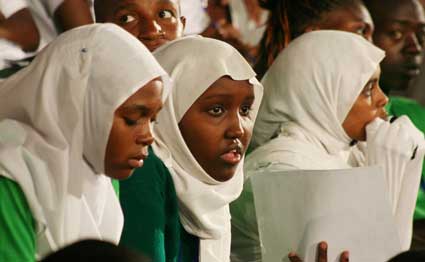Kenya Muslims are demanding comprehensive changes in the way mainstream media in the country covers terror news, warning that current unprofessional practices are fuelling prejudice and Islamophobia in the east African nation.
“Why is that when people of other religions commit criminal acts, we do not see their religion being prefixed to their actions,” Sheikh Abdallah Kheir, a Muslim scholar who also lecturers in a public University in Kenya, told OnIslam.net.
“Recently a church preacher was caught with bomb making material in Kenya, but the media never called his a Christian terrorist suspect? This is double-standard that needs to end,” he added.
Sheikh Kheir concerns were in response to a recent report by Media Council of Kenya, the official agency that regulates the practice of journalism, which delivered a damning indictment against the Kenyan media with regard to the coverage of terrorism issues, terming them unfair to Muslims.
Titled, “Deconstructing Terror: Assessing Media’s Role in Religious Intolerance and Radicalisation”, the report concluded that narratives in the media often cast Muslims as terrorists or potential terrorists.
The Sheikh questioned the common practice in the Kenyan media of using words and phrases that suggest an association between terrorist actions with Islam and Muslims.
He added words such as “Islamic terrorism”, “radical Islam”, “Islamists” and “Muslim extremist” often serve to promote Islamophobia by linking crime with Islam and Muslims.
The report also found that the war between the Kenya government and Al Shabaab is incorrectly being portrayed by some media houses as a religious one between Christians and Muslims, thereby exacerbating interreligious and communal tensions and conflict.
“The media has been propagating the dominant narrative that borders on stereotypical labelling of Muslims. Some of the narratives monitored include: all Muslims are potential terrorists and the war on terrorism is a war between Muslims and Christians,”
The council made the conclusion after analysing the coverage of terrorism issues by Kenya’s mainstream print and electronic media.
/257

